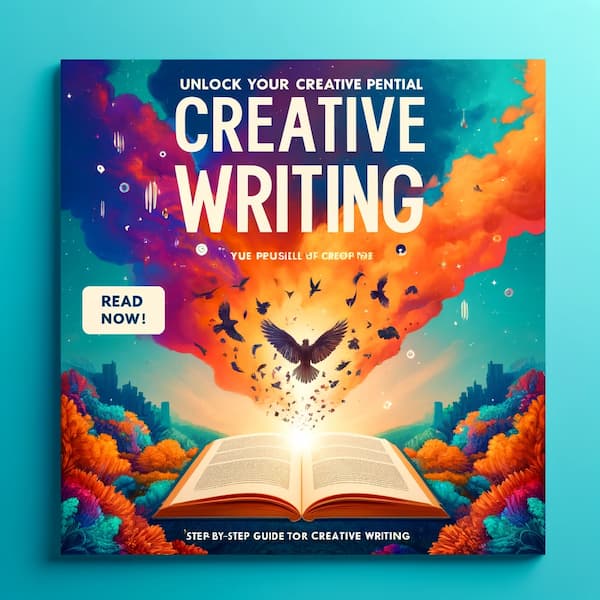Creative writing is your gateway to exploring thoughts, emotions, and stories through imaginative expression. This guide will walk you through each step, ensuring you grasp the essentials and master the craft.

Step 1: Dive into Creative Writing
- What It Is: Encompasses fiction, poetry, drama, and non-fiction.
- Purpose: Entertain, provoke thought, and engage audiences.
- Genres: Includes autobiographies, memoirs, children’s books, drama, flash fiction, graphic novels, novellas, plays, screenplays, short stories, dialogues, and blogs.
Step 2: Building Blocks of Creative Writing
- Plot: The backbone of your story.
- Characters: The lifeblood of your narrative.
- Setting: The world your story inhabits.
- Theme: The core message or idea.
- Point of View: The lens through which the story is told.
- Conflict: The driving force of your plot.
- Style: Your unique voice and expression.
Step 3: Begin Your Journey
- Idea Generation: Let your imagination run wild.
- Research: Ground your story in reality.
- Outline: Map out your narrative.
- Free Writing: Write freely to spark creativity.
Step 4: Crafting the First Draft
- Introduction: Set the stage, introduce key elements.
- Development: Build tension, develop characters.
- Climax: The story’s pivotal moment.
- Resolution: Tie up loose ends, conclude the narrative.
Step 5: Perfecting Your Story
- Content Review: Ensure your story is coherent and engaging.
- Character Development: Deepen character complexity.
- Clarity: Use clear and concise language.
- Grammar and Spelling: Polish your prose.
- Feedback: Seek constructive critiques.
Step 6: Final Touches
- Final Edits: Refine your narrative.
- Proofreading: Eliminate any remaining errors.
- Formatting: Prepare your work for presentation.
Techniques to Elevate Your Writing
- Show, Don’t Tell: Paint vivid pictures with words.
- Metaphors and Similes: Add depth through comparisons.
- Dialogue: Make your characters’ conversations believable.
- Pacing: Maintain reader interest by controlling the story’s tempo.
- Foreshadowing: Build anticipation for future events.
Expert Tips for Creative Writers
- Dedicated Writing Time: Write in a distraction-free environment.
- Self-Awareness: Recognize your strengths and weaknesses.
- Challenge Yourself: Experiment with different styles and genres.
- Learn from Others: Gain inspiration from other writers.
- Share Your Work: Get feedback and seek publication.
Specialized Forms of Writing
- Poetry: Focus on sound patterns and creative exercises.
- Fiction: Character archetypes and plot development.
- Creative Nonfiction: Explore memoirs, essays, and literary journalism.
Conclusion:
Your Path to Mastery Creative writing is a skill honed through practice and passion. By following this guide, you’ll develop your storytelling abilities and create compelling narratives.
